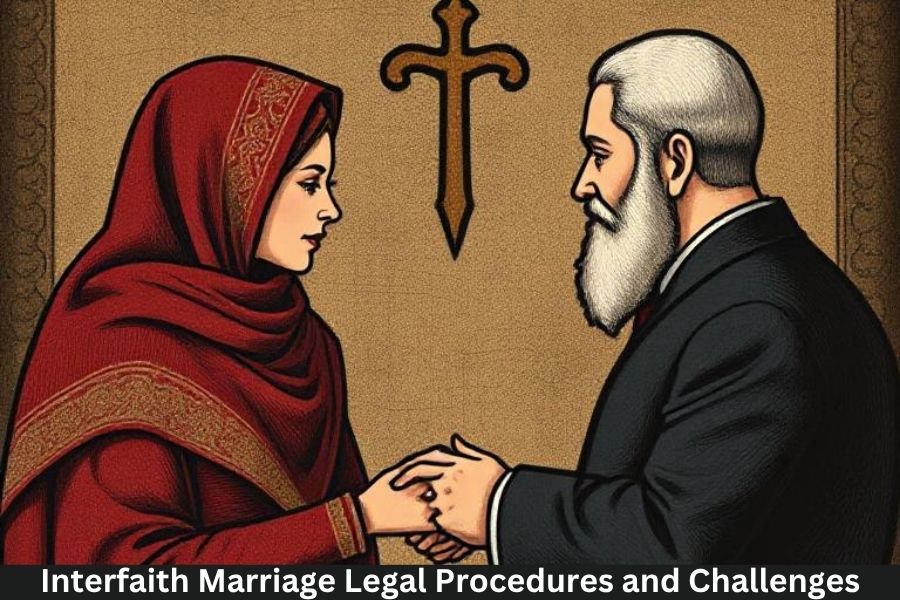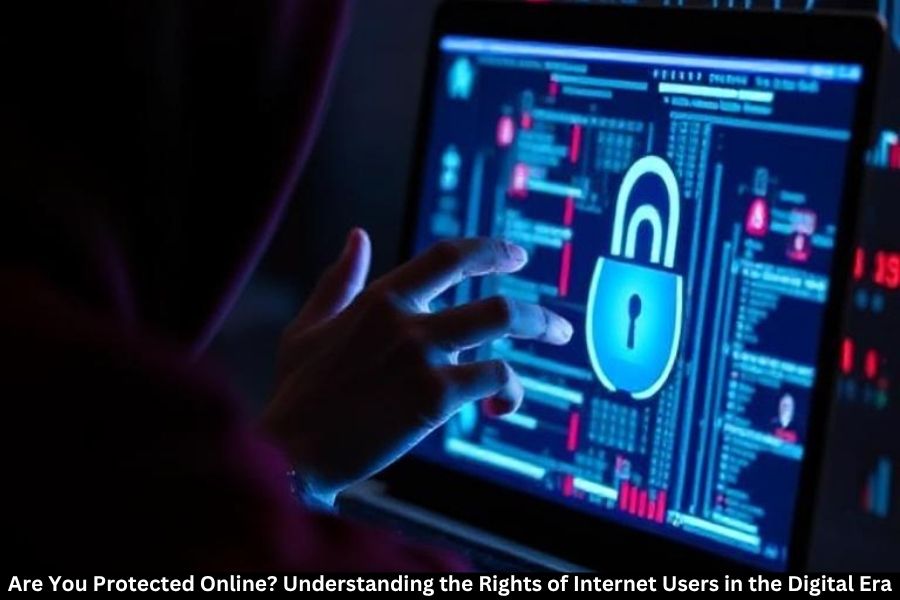Love knows no religion, but the law often does. In India, interfaith marriages—unions between individuals of different religions—are legally recognized but come with specific procedures and challenges. Whether it’s navigating paperwork or dealing with social resistance, couples must understand their rights under the law to protect their marriage and future.
This guide breaks down the legal procedures for interfaith marriage in India, the challenges couples face, and practical ways to overcome them.
Introduction
Interfaith marriages reflect the spirit of India’s diversity and freedom of choice. However, due to religious personal laws, marrying someone from another faith can be complicated. To make such unions legally valid, couples often marry under the Special Marriage Act (SMA), 1954, which provides a secular framework for all citizens, regardless of religion or caste.
What Is an Interfaith Marriage?
An interfaith marriage is when two individuals from different religious backgrounds—such as Hindu-Muslim, Christian-Sikh, or Buddhist-Hindu—choose to get married.
Unlike same-faith marriages conducted under personal religious laws, interfaith unions require civil registration and state authorization to be legally valid.
Legal Basis: The Special Marriage Act, 1954
The Special Marriage Act (SMA) governs interfaith marriages in India. It allows any two individuals of different religions to marry without religious conversion, ensuring equality and secularism in personal relationships.
Key Features of the Act:
- Applies to all Indian citizens irrespective of religion.
- Recognizes both monogamous and gender-equal partnerships.
- Provides legal protection for the couple’s rights, property, and inheritance.
- Ensures voluntary consent and adulthood (18 years for women, 21 for men).
Eligibility Criteria for Interfaith Marriage
Before applying under the SMA, both partners must meet the following conditions:
- Both should be of legal marriageable age (18 for the bride, 21 for the groom).
- Both must be mentally sound and capable of giving valid consent.
- Neither should have a living spouse at the time of marriage.
- Both must consent freely, without coercion or fraud.
Step-by-Step Legal Procedure for Interfaith Marriage
Here’s a complete breakdown of the interfaith marriage registration process under the Special Marriage Act:
Step 1: Notice of Intended Marriage
- The couple must submit a written notice to the Marriage Officer of the district where at least one partner has lived for 30 days.
- The notice includes names, ages, addresses, and intent to marry.
Step 2: Publication of Notice
- The Marriage Officer displays the notice publicly for 30 days to allow objections.
- Anyone can file an objection, but it must have valid legal grounds (e.g., age, existing marriage).
Step 3: Addressing Objections (if any)
- If an objection is raised, the Marriage Officer must investigate and decide within 30 days.
- If no objections arise, the marriage proceeds to the next stage.
Step 4: Declaration and Witnesses
- The couple and three witnesses must sign a declaration stating they are marrying voluntarily.
- This is done in the presence of the Marriage Officer.
Step 5: Solemnization of Marriage
- After all formalities, the marriage is solemnized at the Marriage Officer’s office.
- The couple receives a Marriage Certificate, which legally validates the union.
Documents Required
To register an interfaith marriage, couples must provide:
- Proof of age (birth certificate, passport, school certificate)
- Proof of residence (Aadhaar, voter ID, rent agreement)
- Passport-sized photographs (each partner)
- Affidavit of marital status and nationality
- Notice of intended marriage (as per SMA format)
- Divorce decree/death certificate (if previously married)
- Three witnesses with valid ID proof
Timeframe for Registration
The entire process takes 30–45 days, primarily due to the 30-day public notice period. Delays can occur if objections are raised or if documentation is incomplete.
Legal Rights After an Interfaith Marriage
Under the Special Marriage Act, both partners enjoy equal legal rights:
- Inheritance Rights: Property is inherited as per the Indian Succession Act, 1925.
- Divorce Rights: Either spouse can seek divorce under SMA provisions.
- Child Rights: Children born from such marriages are legitimate and have equal rights.
- Protection from Harassment: The couple is protected under laws against intimidation or violence.
Conversion Before Marriage: Is It Necessary?
No. Conversion is not required if you marry under the Special Marriage Act.
However, some couples choose religious conversion to simplify cultural acceptance or to marry under religious laws.
Be cautious — forced or fraudulent conversions are illegal under various state-level anti-conversion laws.
Interfaith Marriage Under Religious Laws
If a couple decides not to marry under the SMA, they must follow conversion-based laws:
- Hindu Marriage Act, 1955: Both partners must be Hindus (conversion required).
- Muslim Personal Law: Non-Muslim partners must convert to Islam.
- Christian Marriage Act, 1872: Applies to Christian unions or conversions.
These options require one partner to legally adopt the other’s faith.
Challenges Faced by Interfaith Couples
Despite legal recognition, interfaith marriages often face hurdles.
Common Challenges:
- Social and Family Opposition: Many families still resist interfaith unions due to cultural beliefs.
- Threats and Harassment: Couples may face intimidation or even violence from extremists.
- Delay in Bureaucratic Process: The 30-day public notice sometimes exposes couples to unnecessary scrutiny.
- Legal Complications with Conversion: Conversion can lead to disputes about validity and inheritance.
- Religious and Cultural Adjustments: Managing differences in lifestyle and customs can be emotionally taxing.
Landmark Court Judgments Supporting Interfaith Marriages
Indian courts have consistently upheld the right to marry freely under Article 21 (Right to Life and Personal Liberty) of the Constitution.
Notable Cases:
- Lata Singh vs. State of Uttar Pradesh (2006): Supreme Court ruled adults have the right to marry anyone of their choice.
- Shafin Jahan vs. Asokan K.M. (Hadiya Case, 2018): Reaffirmed freedom of choice and interfaith marriage validity.
- S. Khushboo vs. Kanniammal (2010): Recognized consensual adult relationships as protected under the right to privacy.
These rulings strengthen couples’ rights against coercion and interference.
Protection for Interfaith Couples
If a couple faces threats, they can:
- File for police protection under Article 21.
- Approach the District Legal Services Authority (DLSA) for assistance.
- Contact the National Human Rights Commission (NHRC) or State Women’s Commission.
- Seek legal help from NGOs such as Dhanak of Humanity or Love Commandos.
Advantages of Registering Under the Special Marriage Act
- No need for religious conversion.
- Legally recognized across India.
- Provides inheritance and property protection.
- Children are legitimate under law.
- Ensures equal divorce and maintenance rights.
Practical Tips for Interfaith Couples
- Consult a lawyer early to ensure documentation is accurate.
- Avoid publicizing the notice if safety is a concern (approach the court to keep it confidential).
- Seek legal protection in case of threats or social backlash.
- Communicate openly with families to avoid emotional conflicts.
- Keep copies of all legal documents and marriage certificates.
Conclusion
Interfaith marriage in India is both a test of love and law. While it celebrates unity in diversity, couples must navigate a web of legal and societal challenges.
By understanding the Special Marriage Act, completing the proper legal steps, and seeking support when needed, couples can ensure their union is both valid and protected.
After all, the right to choose one’s partner is not just personal — it’s a fundamental right.
FAQs
Q1: Is interfaith marriage legal in India?
Yes, interfaith marriages are legal under the Special Marriage Act, 1954, without requiring conversion.
Q2: Can parents object to an interfaith marriage?
They can file objections during the 30-day notice period, but only on legal grounds, not personal beliefs.
Q3: How long does it take to register an interfaith marriage?
It usually takes 30–45 days, depending on documentation and objections.
Q4: Is conversion mandatory for interfaith marriage?
No, conversion is not required under the Special Marriage Act, but it’s necessary under religious marriage laws.
Q5: Are children from interfaith marriages legitimate?
Yes, children are legitimate under Indian law and enjoy equal rights to inheritance and identity.



